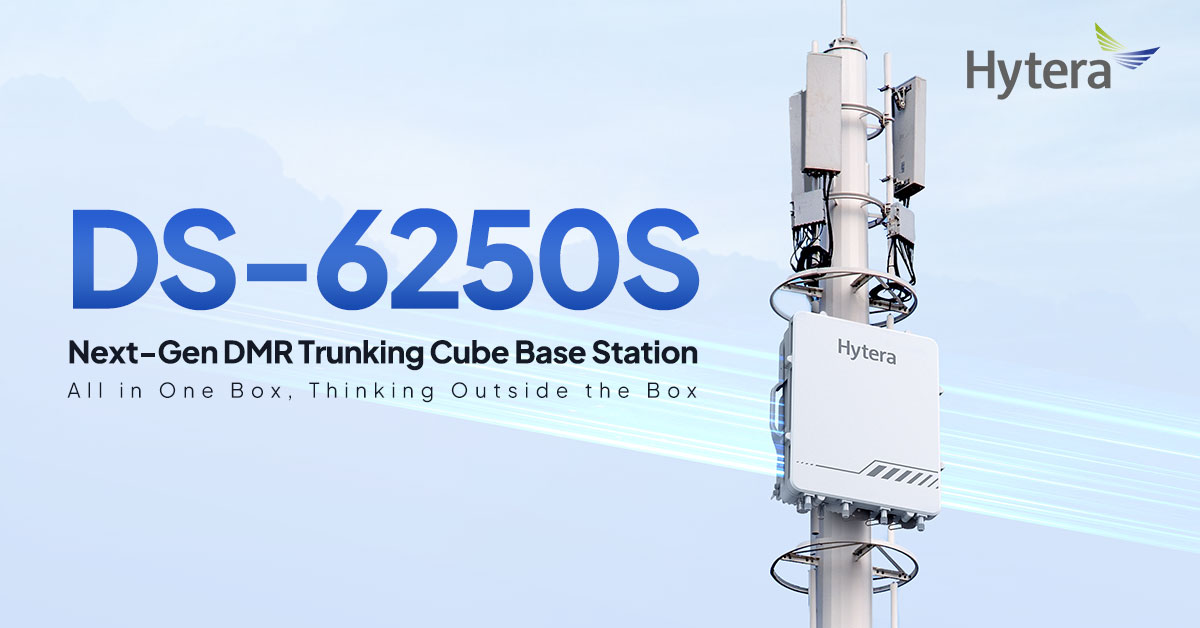How DPD Technology Enables Linear Power Amplification in the DS-6250S
Two-way Radio
In mission-critical communications, the delivery of clean and efficient RF power is an absolute imperative. As networks evolve toward higher complexity—characterized by multi-carrier transmissions and tighter frequency spacing—the challenge of maintaining power amplifier (PA) linearity while minimizing energy consumption intensifies. This challenge stems from the inherent trade-off between traditional linearization techniques and power efficiency, as well as the nonlinear distortion introduced by modern high-efficiency PAs.
Here, Digital Pre-Distortion (DPD) technology emerges as a transformative solution. By pre-distorting the input signal to counteract the nonlinear characteristics of the PA, DPD enables near-linear operation without sacrificing efficiency, thus resolving the core conflict between linearity and power consumption in complex network environments.
What is DPD: Making Power Amplifiers Smarter
Power amplifiers (PAs) inherently exhibit nonlinear performance, especially when driven near their saturation point. This non-linearity results in signal distortion, spectral regrowth, and reduced Adjacent Channel Power Ratio (ACPR)—a key metric for signal purity. To counteract this, DPD applies an inverse distortion to the input signal, effectively “pre-correcting” it so that the output, after passing through the non-linear amplifier, becomes linear again.
DPD systems analyze the output signal in real-time, measure the distortion introduced by the PA, and adjust the input signal accordingly using adaptive algorithms. This not only improves spectral efficiency but also allows the PA to operate closer to its saturation point—maximizing efficiency without sacrificing performance.

Hytera's Breakthrough: Self-Developed DPD in DS-6250S
Hytera's DS-6250S Cube Base Station brings DPD innovation to a new level. Designed as a compact, all-in-one DMR trunking base station, the DS-6250S utilizes a self-developed DPD algorithm, tailor-made for the high-performance multi-carrier power amplifier it employs. So what's different about it?
- Superior Power Efficiency: Traditional multi-carrier PAs often trade linearity for efficiency. The DS-6250S, with DPD correction, achieves 20%-30% PA efficiency, significantly reducing power consumption while maintaining signal integrity.
- Reduced Carrier Spacing: Thanks to improved ACPR via DPD, the DS-6250S supports carrier spacing as low as 50 kHz, which is a major leap from the typical 250 kHz required in legacy systems. This allows for more flexible frequency usage.
- Cleaner Multi-Carrier Output: The DS-6250S supports up to 8 carriers through dual TX paths (4 per path) without requiring bulky RF combiners. DPD ensures these simultaneous carriers stay clean and compliant with regulatory standards.
- Software-Defined Optimization: Integrated into the system's SDR platform, Hytera's DPD is dynamically adjustable—ensuring consistent performance across different loads, frequencies, and environmental conditions.
Driving the Future of Cube Base Stations
By combining advanced DPD with SDR architecture, Hytera's DS-6250S exemplifies how software-driven innovation can unlock new levels of performance, efficiency, and flexibility. As trunking networks push the limits of bandwidth and deployment versatility, intelligent linear amplification powered by DPD will be at the heart of next-gen base station technology.





